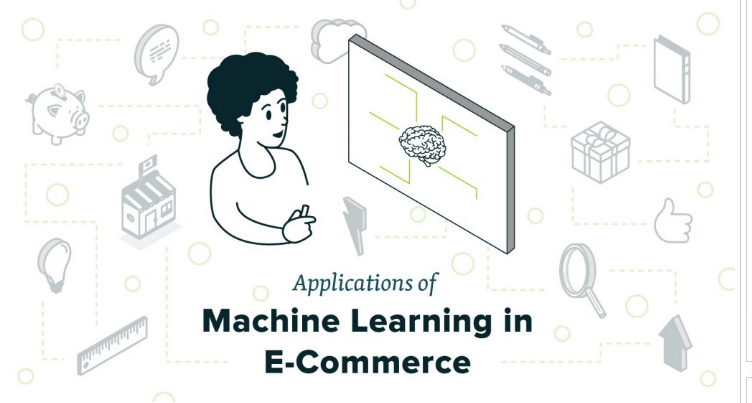Machine Learning for Personalized Shopping Experiences

The rise of e-commerce has led to a shift in the way consumers shop. Today, shoppers are more likely to research products online, compare prices, and read reviews before making a purchase. This has created an opportunity for retailers to use machine learning to provide personalized shopping experiences that meet the needs of individual shoppers.
Machine learning algorithms can be used to track shoppers' online behavior, identify their interests, and predict their preferences. This information can then be used to create personalized recommendations, offer targeted discounts, and provide tailored customer service.
By using machine learning, retailers can create a more engaging and personalized shopping experience that encourages shoppers to return to their site and make repeat purchases.

How Machine Learning Works for Personalization
Machine learning algorithms are trained on large datasets of historical data. This data can include information about shoppers' demographics, shopping habits, and product preferences. The algorithms are then used to identify patterns and trends in the data that can be used to predict future behavior.
For example, a retailer might use machine learning to identify shoppers who are likely to abandon their carts. This information could then be used to send targeted emails or offers to encourage these shoppers to complete their purchases.

Machine learning can also be used to create personalized recommendations for shoppers. The algorithms can take into account a shopper's previous purchases, their browsing history, and their demographic information to generate a list of products that they are likely to be interested in.
Personalized recommendations can help shoppers to find products that they are interested in and that meet their needs. This can lead to increased sales and customer satisfaction.
Benefits of Machine Learning for Personalization

There are many benefits to using machine learning for personalization. These benefits include:
- Increased sales: Personalized shopping experiences can help retailers to increase sales by converting more shoppers into customers and encouraging repeat purchases.
- Improved customer satisfaction: Shoppers who have a positive experience are more likely to return to a retailer's site and make future purchases. Machine learning can help retailers to create a more engaging and personalized shopping experience that meets the needs of individual shoppers.
- Reduced costs: Machine learning can help retailers to reduce costs by identifying shoppers who are likely to abandon their carts and by providing targeted discounts and offers.
- Improved operational efficiency: Machine learning can help retailers to improve their operational efficiency by automating tasks such as customer service and product recommendations.
Challenges of Machine Learning for Personalization

There are also some challenges to using machine learning for personalization. These challenges include:
- Data collection: In order to train machine learning algorithms, retailers need to collect large amounts of data about their shoppers. This data can include information about shoppers' demographics, shopping habits, and product preferences. Collecting this data can be a challenge, especially for smaller retailers.
- Data quality: The quality of the data that is used to train machine learning algorithms is critical to the success of the algorithms. If the data is inaccurate or incomplete, the algorithms will not be able to generate accurate predictions.
- Bias: Machine learning algorithms can be biased against certain groups of people. This can happen if the data that is used to train the algorithms is biased. For example, a machine learning algorithm that is trained on data from a predominantly white population may not be able to generate accurate predictions for shoppers from other racial or ethnic groups.
Conclusion

Machine learning is a powerful tool that can be used to create personalized shopping experiences that meet the needs of individual shoppers. By using machine learning, retailers can increase sales, improve customer satisfaction, and reduce costs. However, there are also some challenges to using machine learning for personalization, such as data collection, data quality, and bias.
Retailers who are considering using machine learning for personalization should carefully consider the challenges and weigh them against the potential benefits. If done correctly, machine learning can be a valuable tool for improving the shopping experience and driving sales.
Additional Resources

- Machine Learning for Personalization: A Guide for Retailers
- How Machine Learning Can Personalize the Shopping Experience
- The Benefits of Machine Learning for Personalization
- [Challenges of Machine Learning for Personalization](https://www.econsultancy.com/blog/67612-the-challenges-of-machine-learning-for-personal
Post a Comment